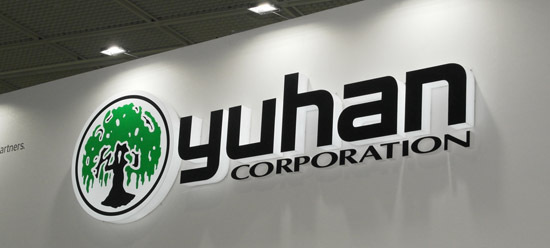Bio
Yuhan ups investment in biotechs for immuno-oncology drug push
[THE INVESTOR] Korea’s largest pharmaceutical firm Yuhan is accelerating its investment in biotech companies in a bid to bolster its new drug portfolio for treating oncology and endocrinology.
The company’s latest deal was forged with no-research-development-only firm Bridgebio Therapeutics to jointly develop immunotherapy for cancer. Under the agreement it forged on June 4, the biotech firm will initiate preclinical and early-stage studies on an immunotherapy candidate, which has been under development by Yuhan since 2015. As a part of the contract, Yunhan bought a 1.4 percent stake in Bridgebio for 2 billion won (US$1.86 million).
 |
“Since CEO Lee Jung-hee took office in 2015, we have been increasing investments in pursuit of open innovation which totals around 150 billion won in the past three years,” a company official told The Investor.
The focused areas for investments are anti-cancer therapies and medicine dealing with the endocrine system and hormones, he said.
Companies that Yuhan has invested in, whether in forms of a stake acquisition or co-development partnership, include immunotherapy developers Genexine, ImmuneOncia and PharmAbcine as well as molecular diagnostics developer Bioneer.
“Yuhan’s pipeline premium lags behind other large pharmaceutical firm but its valuation could gradually increase in accordance with the clinical development of pipelines it has secured through open innovation with Genexine and ImmuneOncia,” said Kang Yang-ku, an analyst at Hyundai Motor Investment & Securities.
Although Yuhan logged the largest revenue of 1.46 trillion won among local drug makers in 2017, sales from its self-developed drugs are insignificant. Some 75 percent of its sales are generated by medicines developed by global pharmaceutical companies like Boehringer Ingelheim and Gilead Sciences.
Recently, Yuhan’s investments started to bear fruits. YH25448, a non-small cell lung cancer drug candidate – which it bought a license from Oscotec -- is expected to complete phase 2 clinical trials by the end of this year. If successful, the therapy could replace AstraZeneca’s Tagrisso, the analyst said.
In February, immune checkpoint inhibitor IMC-001 that Yuhan in-licensed from ImmuneOncia was approved to run phase 1 clinical program here.
By Park Han-na (hnpark@heraldcorp.com)






![[From the Scene] Gigantic Olive Young store lures young trend-setters in Seongsu](http://res.heraldm.com/phpwas/restmb_idxmake.php?idx=151&simg=/content/image/2024/11/21/20241121050065_0.jpg)

